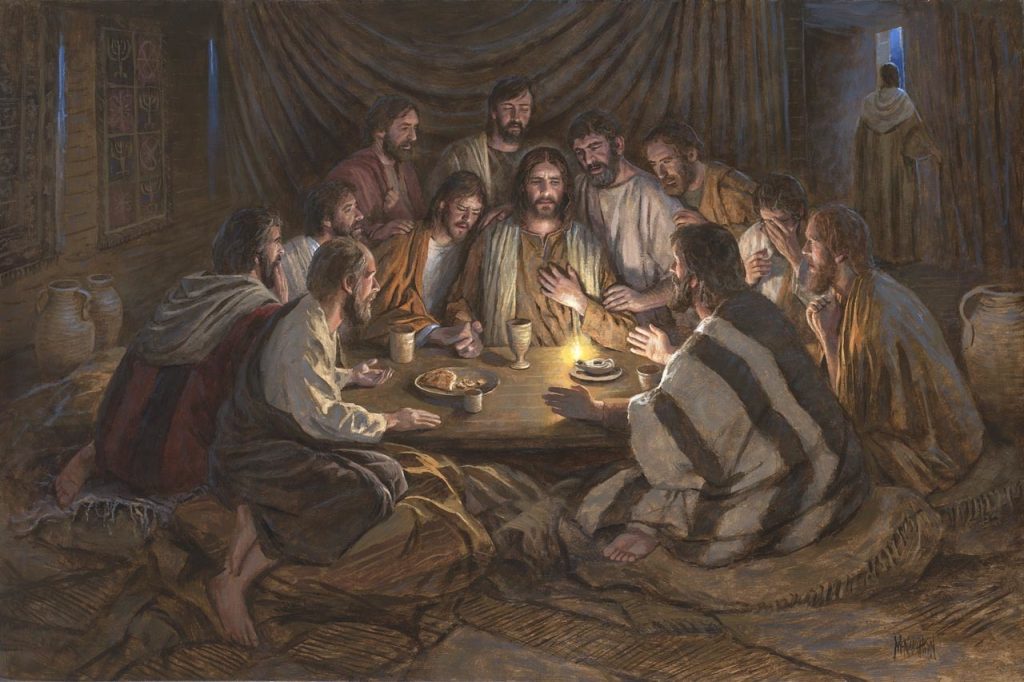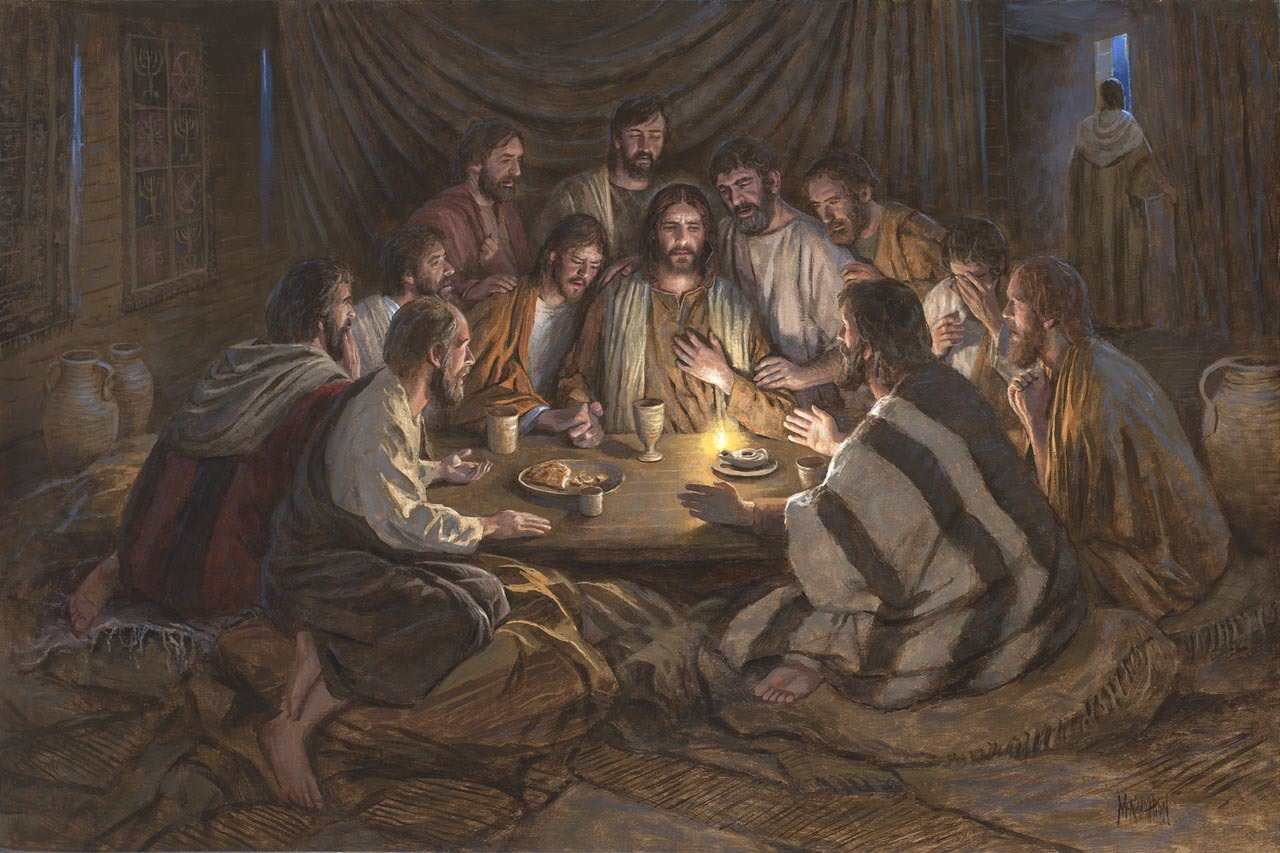
Today we celebrate the Triumphal Entry of Our Lord and Savior Jesus Christ into Jerusalem or as it is today known as, Palm Sunday. Today is the day we commemorate Jesus riding into the City of Jerusalem on a donkey, the noble beast, and where he will be proclaimed King by the people. As I mentioned last week, this is one of the events that pushed the political and religious leaders of the day over the edge, this was, in fact, an act of treason and one punishable by death.
Historically there are two ways for a conquering king to enter the city he has just conquered. The first is to come as a military leader that is about to impose martial law on the citizens of that city. He comes, usually, on a white horse to signify his power over the people and that he intends absolute rule. The second way for the king to enter the city he has just taken over is to come riding on a donkey, as a symbol of peace. Riding the humble donkey, with armaments shows the people that the king comes in peace and hopes to rule his new city in that peace, this is how Jesus came into the town, not as military ruler to smite everyone, but as the King of Peace to bring that peace and he was met with cheers and palm branches, but soon those cheers would change.
But today is also Passion Sunday, and traditionally on this day, churches would read the passion account, part of which we heard this morning. Today we turn the page, Lent is finished and the holiest of weeks is starting, and we begin this Holy Week by calling to mind why we are all here and the example that Jesus Christ left for us. But let us be clear as we begin this journey. Jesus was not killed as some sort of divine retribution, or to fulfill some plan hatched long ago by a God that required a sacrifice, no, Jesus was killed, murdered if you will, because he dared to stand up to a corrupt, oppressive system that dehumanized people. Jesus was murdered because he came to show us a different way, a way in which all were invited to the table; all would be treated equal, and way a love, love for all including our enemies. That is what the week ahead of us is all about.
I would like us to focus on one small part of the passion story. It’s a small part of the story but it is a large part of or should be anyway, of our spiritual practice, and that is the celebration of the Lord’s Supper. The events that took place in the Upper Room on that night that he was to be betrayed. The night he gathered for the last time with those closest to him in a very intimate way. They shared their last Passover meal together and after the supper was ended the events unfolded.
Historically, there has been a lot of time and energy spent on what actually happened. Did the bread contain leaven or not? Who was there? What did Jesus actually mean, was this his actual body and blood or was it a mere symbol? Thousands have died because of their answer to this question. Many more thousands have been turned away over the last 2,000 plus years and told they were not worthy, they were not part of the club and therefore they could not partake of the bread and cup of salvation. Wars have been fought over this simple command to remember Jesus and his sacrifice for all of us.
But what is this simple meal all about?
I reminded you last week that all of the Apostles, all of those that Jesus chose to follow him were present at that meal. Everyone, including Peter that would deny him, Judas that would betray him, and all the rest who would run and hide and abandon him just when he needed them the most. All of them were present. Jesus knew what each of them was about to do yet he sat with them at the table and broke himself open for them. He shared his last meal with them, and now, in a very intimate way, he was sharing himself. Think about that for a moment, those who were about to hand him over to be killed were with him at that table yet we would exclude someone because of who they love or the color of their skin!
We call communion one of the Sacraments of the Church. The reformers believed that there were in fact sacraments but only two, baptism and the Lord’s Supper. So it would not be abused; these same reformers decided that once a month or maybe even only once a year, the people should gather for this feast and celebration. But is a sacrament, so we need to define just what a sacrament is. The classic definition of a sacrament is an outward sign of inward grace and the means by which we receive it. In other words, this is not just another meal something is happening here that we need to pay attention to.
Now I grew up believing that a transformation takes place during the communion prayers that the simple bread and wine, I am using wine today as it is more poetic than grape juice, but that simple bread and wine transform through the power of the Holy Spirit into something other than what it was. My belief has changed over time, I still believe that a transformation of a sort happens, I cannot explain it, and I am not quite sure what that change is, but those elements of bread and grape juice cease to be ordinary and become extraordinary, not is a “we must bow down and worship” way but in a blessed and sanctified way and they become for us that outward sign, they become holy to make us, in some way, holy.
By our participation in that meal, we receive grace from God, not that we would not receive it if we did not take the elements, but grace is imparted on us. This is why I believe in a sense of formality, dignity, and solemnity on Sundays and other times of the year when we celebrate communion. It is a holy time, a particular time when we recall the life that was sacrificed, not on the cross but in the dedication that Jesus had to show us a new way to live and that he was willing to die, not to right some ancient wrong, but because he believed in what he was doing.
The act of partaking in communion is to bring us together. I know this might sound trite, but there is a Union in Communion. So powerful was this image of union that people were instructed that of they held anything against another they were to go and right that wrong and then come back to the table. We say a prayer of confession, and it needs to be more than just words that we say, but we say this prayer before we partake so we are, spiritually, in the right place, not that God cannot work in us and through us if we are not, but by confession we are setting the best table we can and we invite the King to come and dine with us. What we do is not a sacrifice. What we do is not merely symbolic. What we do is holy and, and we do it to remind ourselves that we are to love everyone and that we are to take that love from this place out into the world and spread it.
In the coming days, we will have two opportunities to receive this Sacrament of the table. Maundy Thursday, the day we commemorate the institution of the Sacrament, and on Easter, after all, it is what it is all about. My prayer is that we will have a better understanding of what takes place and a more spiritual understanding of what we are supposed to do with it. I hope you will spend time this week meditating on the events of the week. I hope you will spend time in prayer that these days make a difference in your spiritual life and that there is a renewal of spirit and soul. These are dark days ahead, but we know that the morning is coming and the light will shine again.

